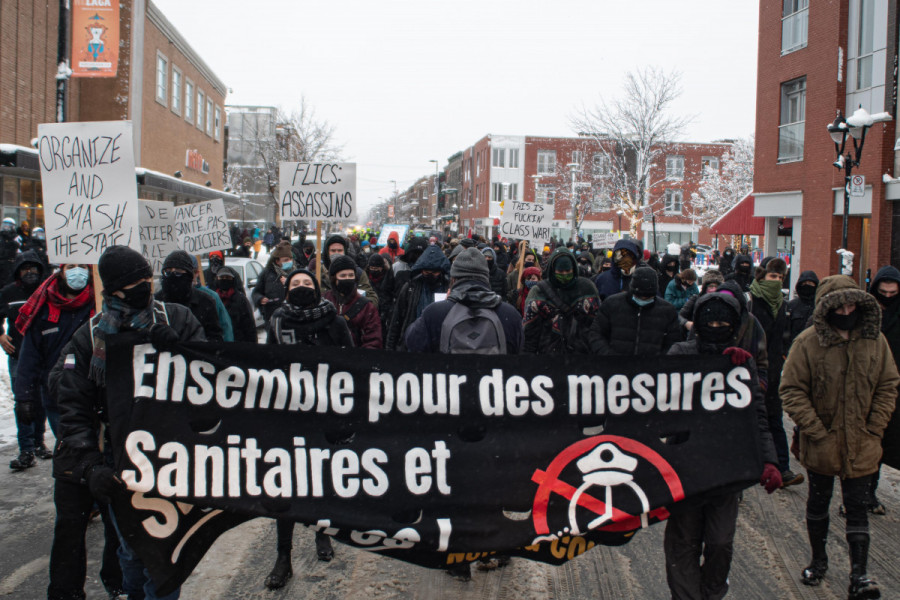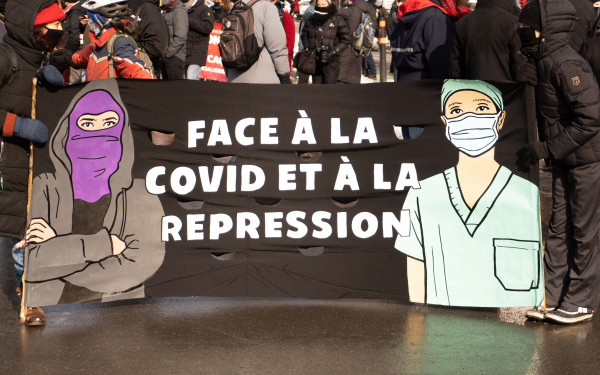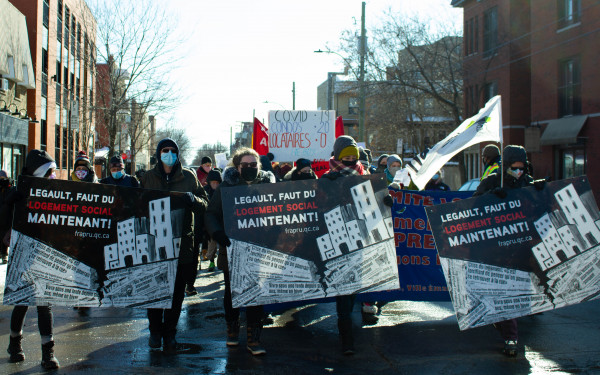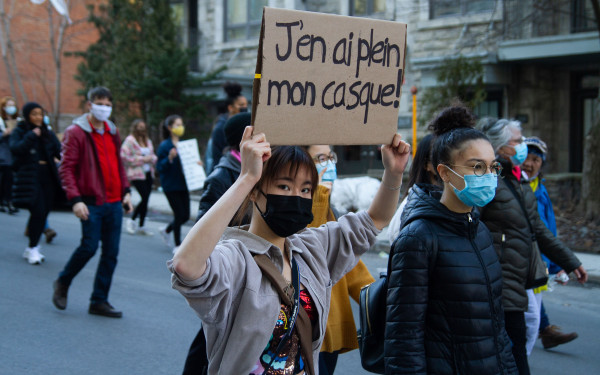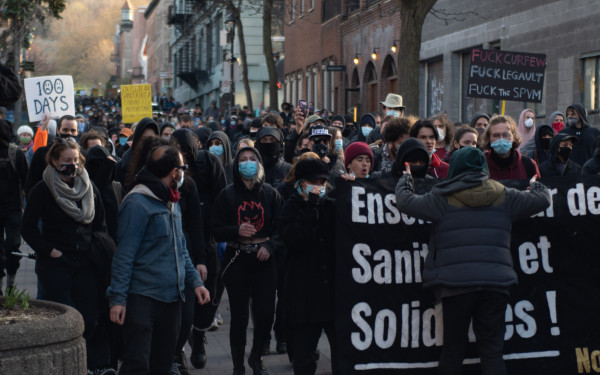Protest against police-based solutions to the COVID-19 pandemic on Feb. 6
Organizers ask for progressive discourse around solutions involving society’s most vulnerable
On Feb. 6, there will be a protest against police-based solutions to the COVID-19 health crisis at Place Émilie-Gamelin close by to the Berri-UQAM metro station in downtown Montreal.
According to the Facebook event’s description, the event is oriented toward scientific consensus and social justice. “Discriminatory, anti-masks, anti-vaccine and conspiracy speech/behaviour from the extreme right are not welcome and will not be tolerated,” they wrote.
In a press release sent out on Monday, it was announced that the collective "No police solution to the health crisis,” The Association Québécoise Pour la Promotion de la Santé des Personnes Utilisatrices de Drogues, Solidarity Across Borders, and housing rights group P.O.P.I.R. are all playing a part in the demonstration.
"Rather than investing massively in the social safety net and in the general improvement of life and working conditions, the CAQ government is making a conscious choice to normalize would-be exceptional surveillance measures," read the press release. "Slashing our constitutional rights without scientific justification, and preferring to save the economy at the expense of many lives."
The organizers outlined in the Facebook event's page that the police-based solutions being implemented by the Legault government in response to the pandemic are unacceptable. They think these measures were put in place to hide the government’s true intentions of saving the economy at all costs.
Read more: Immigrant Workers Centre demand financial compensation for workers, end to police harassment
This is highlighted in the event’s description: “How can we explain that, once again, the already marginalized people, whether they are homeless, racialized, sex workers, drug users, non-status workers, tenants, identifying as women or as LGBTQIA+, will have to pay the costs and suffer the cruel impacts of the curfew and police repression?”
“They chose not to invest resources where they are needed: in housing, in health, in the community, in education, and in improving our working conditions more generally,” the organizers wrote, criticizing the governments’ allocations of resources during this time. They believe that it should not be up to the vulnerable to pay for the “calculations” of the economic and political elite. They want to make way for progressive discourse that rejects what they perceive to be the capitalist, colonial and patriarchal management of the health crisis.
Although organizers acknowledge how important safety is while protesting, they make a clear declaration that they plan on achieving that through “collective responsibility and mutual support.” There will be no cooperation with the SPVM.

